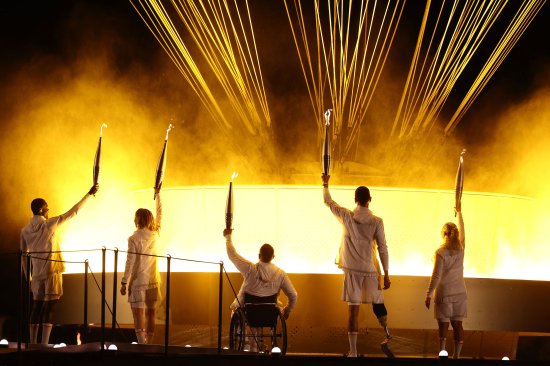
The Paralympics are an opportunity to elevate athletes who represent the pinnacle of human determination.
As the world marveled at the inspiring athletes of the Paris Olympics, another equally important event was on the horizon: the Paralympics. Despite the remarkable achievements of these athletes, Paralympians often lack the same media coverage, sponsorship, and cultural fanfare that their Olympic counterparts receive. This is a missed opportunity—for brands, for media, and for society at large. Now, more than ever, we must seize this moment to elevate the athletes who represent the pinnacle of physical achievement, human determination and talent.
This year, the Games have taken significant steps to ensure that the excitement and energy of the Olympics flow seamlessly into the Paralympics. One of the most notable advancements is the reduced time gap between the Olympics and the Paralympics, now just three weeks. This condensed timeline keeps the global spotlight on athletic excellence, ensuring that the momentum of the Olympics carries forward into the Paralympics. It sends a powerful message: All athletes, regardless of ability, deserve the same celebration and recognition.
[time-brightcove not-tgx=”true”]But while these advancements are significant, much work remains to elevate the Paralympics to the same cultural prominence as the Olympics. After all, athletes are athletes, and true athleticism lies in the extraordinary abilities and determination of all competitors, regardless of physical ability. Consider the power of these athletes. Tatyana McFadden, a 17-time Paralympic medalist in wheelchair racing who has spina bifida, has become one of the most decorated Paralympians in history. Beatrice “Bebe” Vio, the Italian Paralympic fencer who lost her arms and legs to meningitis won gold in Rio in 2016 and Tokyo in 2020. Then there’s Sarah Storey, Britain’s most successful Paralympian, who is not content with excelling in one sport, but dominates in both swimming and cycling. Oksana Masters, born in Ukraine and now representing the USA, has competed in both the Summer and Winter Paralympics across multiple sports.
In Paris 2024, we’re set to witness new legends in the making. Look out for Brazilian track star Verônica Hipólito, who, after a series of health battles, is poised to make a remarkable comeback. And then there’s India’s Sheetal Devi, who—at 17 years old—will make history as the first female para-archer to compete internationally without arms. These athletes’ stories aren’t just inspiring; they are a testament to what is possible when the focus is on ability, not disability.
To further progress, we must recognize opportunities to integrate Paralympians more fully into the media spotlight. There is immense opportunity in how we approach the closing ceremonies. Traditionally, the handoff from one host city to the next happens at the end of the Olympics, signaling a sense of closure. But in reality, we have more incredible competition left with our Paralympians. What if the torch handover to Los Angeles at the conclusion of the Paris Olympics was reserved for the end of the Paralympics, signaling that the Games are not truly complete until all athletes have had their moment to shine? Such a shift would emphasize that the Paralympics are an integral part of the global sports narrative.
Peacock will stream a record-breaking 1,500+ hours of coverage across all 22 Paralympic sports and 549 medal events, and NBC will dedicate prime-time programming to the Paralympic opening ceremonies—but that still doesn’t compare to what we saw with the Olympics. As Paralympian Alana Nichols once noted, “It’s kind of this self-reinforcing process that happens where women, I think, with disabilities have far less media coverage and access.” In future games, organizers should seek out more opportunities to integrate Paralympians into marquee Olympic media coverage, featuring them in on-air commentary, teasing what’s ahead after the Olympics and elevating the Paralympic athletes themselves. Their stories would reach a far broader audience, inspiring millions and shifting perceptions about what athletes with disabilities can achieve, and this cross-pollination would ensure that athletes of all abilities experience the halo effect of the Olympic Games. The Paralympics represent a tremendous opportunity to showcase the full spectrum of human potential and to redefine our perceptions of ability. By giving Paralypians the visibility they deserve, we would not just be celebrating their achievements—we’d be helping to shape a more inclusive and representative world where everyone, regardless of ability, can see themselves as champions.
Let’s ensure that the excitement and global support that fueled the Paris Olympics continue to fuel the Paralympics—and beyond. This is a call to all of us to recognize and celebrate that athleticism knows no bounds.
TIME Ideas hosts the world's leading voices, providing commentary on events in news, society, and culture. We welcome outside contributions. Opinions expressed do not necessarily reflect the views of TIME editors.